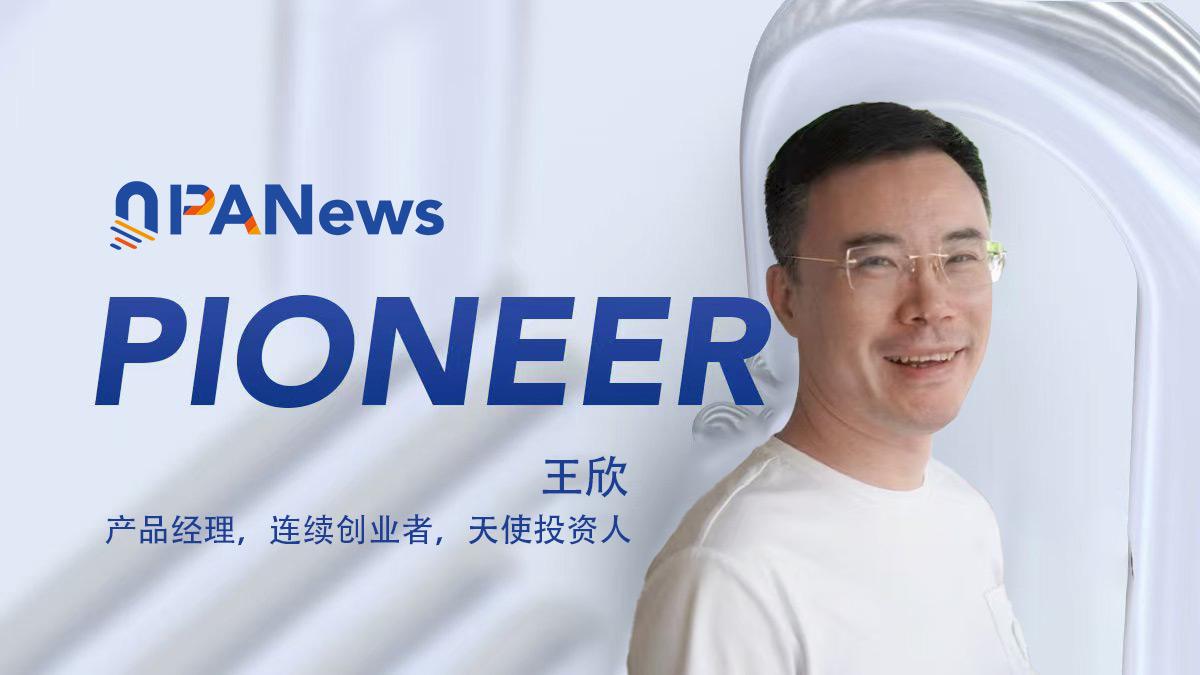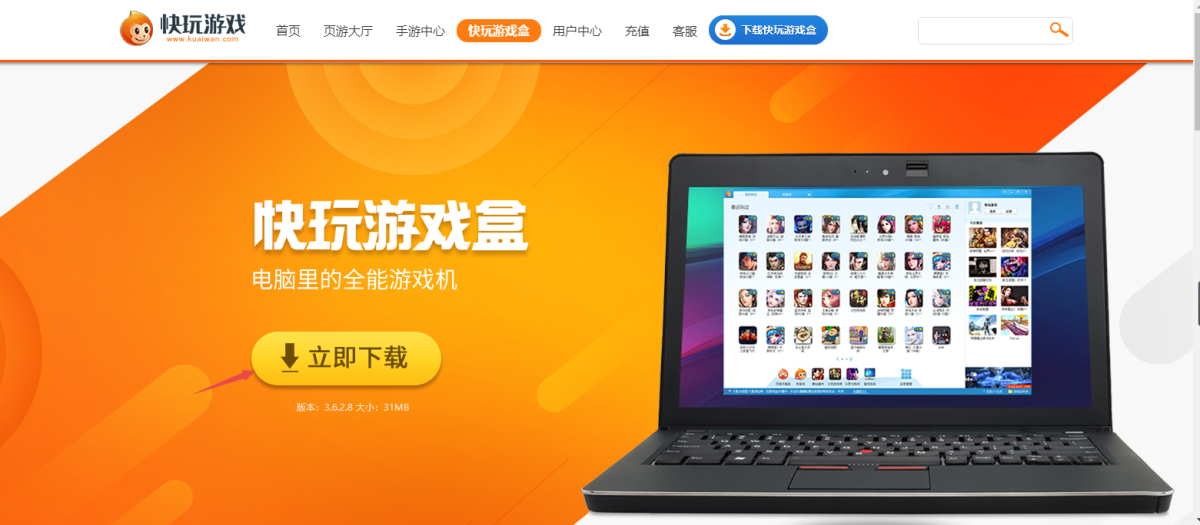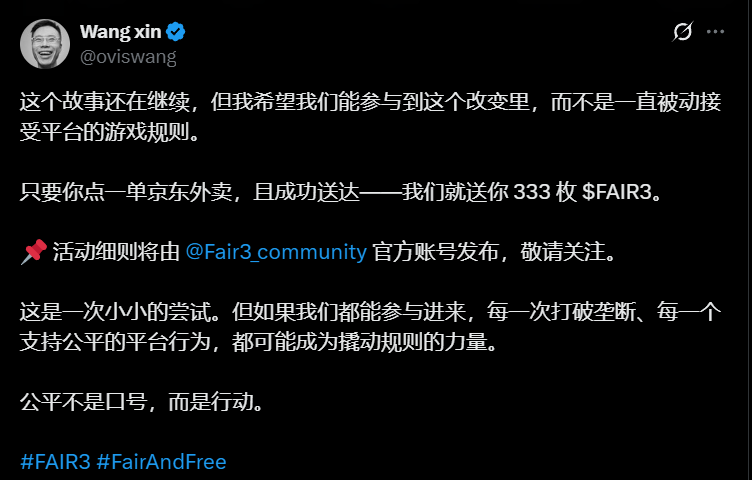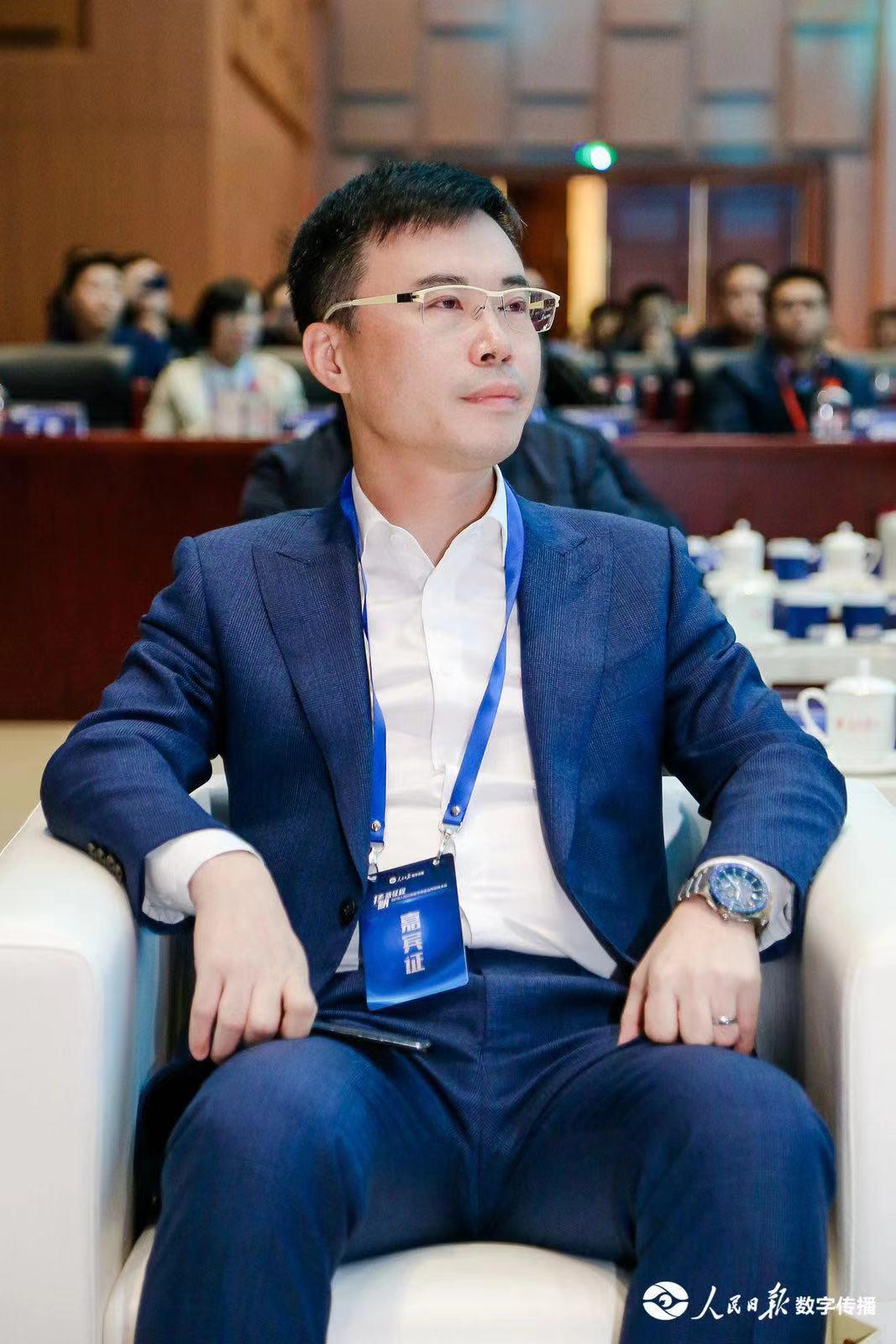
作者:Zen,PANews
在中国互联网发展的黄金年代,快播曾是无数人心中的传奇。该视频播放器曾一度占据国内 80% 的视频流量,服务用户超 5 亿人。而快播的缔造者——王欣,也因其经历了从巅峰到低谷的人生起伏。
在重获自由后,王欣曾以一种全新姿态回到大众视野。但创业“第二春”并不顺利,随着新产品的热度散去,二次创业的王欣也渐渐“隐退”,沉寂许久。
直至2025 年初,王欣重拾创业热情,宣布全身心投入 Web3,并将重心放在AI Agent 与加密经济的交汇点。他还提出了“技术公平”的理念,并将其视为下一阶段创业的核心价值。
在日前接受PANews的专访时,王欣坦率分享了他对过去的回顾、对公平技术的执着,以及在Web3浪潮中重新出发的信念。
两过区块链行业大门而不入
2011年,王欣首次接触到比特币。出于对去中心化货币的好奇,他阅读了比特币的源代码,简单挖了些币。由于当时专注于快播业务,他并未将过多精力投入其中,没有花太多时间去研究。那时的BTC,在他眼中更像极客的实验品:波动剧烈,前景未明。
“现在看比特币这个心态就完全不一样了”。十多年过去,王欣对比特币的看法发生了彻底改变。一方面,比特币背后的区块链技术令他由衷佩服其技术创举;而另一方面,比特币也从鲜有人问津,一步步成长为与黄金同级的主流资产。王欣表示,凭借社区驱动、无中心化机构背书的架构,建立起全球信任,颠覆了他最初的怀疑,也给了他许多启发。
相比于当前Web3行业进入冷却期,2018年对大多数从业者和投资者而言,无疑是一个热钱涌动的年代,不少互联网创业者在真格基金创始人徐小平振臂一呼“拥抱区块链”后All in。那一年2月,王欣重获自由,并在与小鹏汽车创始人何小鹏、58集团CEO姚劲波、欢聚时代CEO李学凌等人的一次小聚中“高调复出”。何小鹏在社媒上表示,王欣身体健康,思维也与他们一致,大家一起讨论了AI、视频、区块链技术的发展。当时有许多小道消息称,王欣要入局区块链行业。

然而,最终王欣选择在深圳创立云歌人工智能,投身社交与AI赛道,先后推出“马桶”“灵鸽AI”。由于此前的经历,王欣称他无法带团队冒政策风险。“那个时候就 all in 区块链的话,怕会触碰了红线”,王欣坦言。
2018年前后,虽然ICO热潮余温未散,但监管政策高度不明朗,国内区块链创业环境骤然收紧。作为一名对团队与公司负责任的创业者,王欣曾在快播出事后,要求公司开除员工,以让员工申请劳动仲裁获得赔偿。因此在二次创业时,抱着负责任的态度,他不愿意再让团队承担任何风险。不过,在公司内部,仍保留小团队持续关注区块链行业,保持对该技术的学习研究。
神隐、沉淀数年后入局Web3
自先后推出社交应用“马桶”与主打灵活用工的招聘产品“灵鸽AI”后,王欣一度淡出大众视野长达三四年。对此番“神隐”,王欣表示,这是他有意为之,亦是环境使然。
“灵鸽AI”与“马桶”除了在发布之初由于王欣的“明星创业者”光环加持获得关注外,后续并未掀起什么水花。两款产品均未达预期,其中“马桶”项目甚至在上线前被叫停。这种起起伏伏的经历,使他认识到有必要进行冷静反思。王欣表示:“这种调整,我觉得对我这么一个连续创业者来说还是蛮重要的。我原来有过辉煌,也有过低谷的时候,其实就是需要更强大的内心,还有更清晰的目标。沉淀自己,我觉得才能够走的更远一点。”

2019年,在接受《新京报》采访时,王欣曾称“我做不了很好的投资人,会是一个很好的创业者。”不过,在几年的沉淀期内,他实际上也投资了不少项目,且多集中于硬件和AI领域,如近期传闻考虑上市的飞行汽车公司“小鹏汇天”,以及一家占据全球市场主要份额的激光雷达公司。 王欣说,他并不是有意去做一名投资人,而是应朋友邀请,帮忙做一些辅导和支持,随着了解深入便跟着参与投资。他还透露,目前并未参与投资Web3项目。
虽未正式入局,但王欣一直与区块链行业渊源颇深。快播的P2P技术使所有用户都能发布共享文件,且不易被中央系统管控,其理念与区块链网络系统有着异曲同工之处。此外,快播还曾推出过流量矿石项目,其旨在汇集个人手持设备、家庭带宽、企业节点等众多闲散的带宽和CPU资源,通过云计算的方式将实时的部署利用达到最优化,本质上是利用共享经济模式来做CDN(内容分发网络)。从某种程度上来说,这也是如今DePIN的雏形。
而随着AI行业快速发展,ChatGPT 等大模型普及,以及新加坡、香港等国家和地区的Web3政策逐渐明晰,王欣意识到,这两项分别大幅提升生产力和改善生产关系的技术可以实现融合。这一切入点,也成为了他进入Web3行业的“入局点”。
聚焦Web3 + AI agent
放眼整个 AI 行业,“Web3+AI”目前还只是一个非常小众的赛道,就连不少明星“Web3+AI”项目也被诟病“粗制滥造”。而实际上,王欣在 AI 领域摸索的时间和认知,可能超过了大多数如今 Web3 从业者。
根据个人的创业和投资经历,王欣表示,小公司和团队如若做通用 AI 平台,成本压力极大。算力开销常占到 80–90% 预算,创业者很难支撑。他认为,与其做通用平台,不如聚焦垂直场景,打造“小而美”的落地产品,或者另辟蹊径,将 AI 与 Web3 结合,寻找新的商业模式。
“AI是很中心化的,包括大模型都是超级中心化的,它跟Web3其实扯不上什么关系,这个时候我们就想,AI的哪一部分会跟个体有关系?那就是AI agent,”王欣说道。
AI Agent 本质是可编排的自动化工作流,需要人参与调优、决策。人对结果的选择,实际上参与了对 Agent 的“训练”。 王欣称,当某个社群或 KOL 反复优化同一类任务时,他们就拥有了这个 Agent 的核心价值。此时,Agent 的所有权与收益分配理应归属于这些贡献者自己。借助 Web3 的公钥/私钥体系,每个 Agent 均可拥有唯一的链上身份,智能合约则实时记录每一次贡献与相应收益,确保“数据贡献者”真正成为“价值获得者”。
此外,王欣认为,Web3 的两大核心为资产发行与资产转移,前者门槛越来越低,后者基础设施日趋完善。 真正的难题在于,如何让发行的资产持续增值,如何让社区参与方、运营团队、普通用户在生态中各得其所。他指出,解决之道既在于产品力提升,也在于用好Web3对生产关系的重塑,这当中就蕴藏着大量潜在的创新。例如解决 Web3的高学习成本、私钥管理、Gas 费设置等痛点,避免将绝大多数网民拒之千里,当链上体验足够贴近人们的日常操作,才可能出现新的职业、新的社群、新的创业机会。
“隐藏”的游戏巨头如何看待链游?
除视频播放器之外,快播旗下的游戏平台“快玩游戏盒”曾是该公司的重要收入部分。这款集成海量游戏的平台,为无数玩家开启了单机游戏世界的大门,其巅峰时期甚至与Steam 中国区“一时瑜亮”,月活用户达百万以上,胜过绝大多数链游项目。而在Web3领域,曾经被寄予厚望的游戏赛道却处在长期低迷的情况下。

“可玩性与去中心化难以兼得”。当被问及是否看好Web3游戏前景时,王欣坦言,真正好玩的游戏并不依赖 Web3 才能存在。实际上,无论是游戏大作,还是过往的经典页游与单机,玩家追逐的是沉浸与乐趣,而不是底层技术实现的方式。当开发者一味把区块链当作“融资工具”、“发币通道”而叠加在游戏之上时,往往会让可玩性打折。玩家要学私钥、担心手续费、担心资产安全,便完全背离了“游戏应该让人快乐”的初衷。
“如果一款新游戏同时承载创新玩法和Web3 模式,成功几率极低。”王欣指出,游戏的核心始终是内容。无论技术如何迭代,玩家追求的是剧情、画面、操控和社交体验。正确的路径,应当是先从“某一环节”切入。例如,利用链上低成本支付替代传统信用卡、App Store 分成,将 3–10% 的手续费节省下来,减轻游戏厂商获客与变现压力。此外,在跨境发行的过程中,以稳定币或多链钱包完成玩家充值、分润和提现,开发商无需昂贵的广告投放也能降低成本。
当支付和分润环节平滑地“无感”集成进游戏内,玩家既享受了传统游戏体验,也在不知不觉中使用了 Web3 基础设施。而开发商也将减少中介的分润,在获得更多收益后有能力持续提供更好的产品。“所以如何让他们有利润,我觉得这要通过Web3的这些生产关系的改变。”
为何支持Meme币Fair3?
在来到Web3行业后,王欣的身份似乎不再是连续创业者,而是支持者和布道者。他经常在社媒上分享对人工智能、区块链技术的观点,有时也会直接提到他正在支持的Fair3 。据王欣所说,其并非传统意义上的“项目”,而是一个以“技术公平”为核心理念的生态。
王欣称,Fair3起源于一个纯粹的Meme 币,在一群核心成员(CTO 团队)接手后,他们开始思考更深远的愿景:不止于社区的文化属性,更要构建真正去中心化的生态,让每个个体因参与而获益。 而Fair3 则是希望借助Web3 的力量,挑战传统互联网中由中心化算法和平台垄断所导致的各种不公平,将“积沙成塔”的文化转化为实实在在的生态价值。
“历史的每一次生产关系变革都解决了当时的核心问题,农业解决粮食,工业解决资本,”王欣进一步表示,而在如今的“知识阶段”、“注意力阶段”,数据与算法的垄断让普通用户和内容创作者备受剥削。主流平台对创作者高额抽成、电商买量成本高达30–40%,内容分发抽水甚至达到90%,这些都是不公平的行为。 Fair3 要做的,是将无数微小个体的“沙粒”汇聚,通过社区的凝聚与发声,让不公平显形,并借助去中心化技术,实现从文化建构到生态落地的转变。
例如,CTO 团队已经组织多场小规模Meme 文化创作与分享活动,社区成员自主录制“不公平故事”,记录个人遭遇并相互声援。日前,社区还发起了“外卖公平”行动,鼓励社区成员支持京东外卖,并为参与者空投代币,通过实际消费行为揭示并矫正平台补贴与抽成的不公平等等。

王欣透露,目前Fair海外社区规模达两到三万人。随着生态建设推进,Fair3 计划引入更多开源项目与工具,包括投资分析、空投信息推送、消费撮合平台等,以为持币者和消费者提供切实价值。
何为技术公平?
在采访中,王欣数次提及“技术公平”。他也向我们分享了这一理念的详细内涵:要真正实现技术公平,必须同时满足算法透明、数据归个人所有和个体持续盈利三个要素。
算法透明是指所有核心算法必须开源、可审计,不能有任何“黑箱”操作。只有当参与者能够清晰地看到算法逻辑,才能对其结果保持信任;一旦算法不透明,就会引发普遍的质疑与抵触。王欣表示:“我们所有项目都将坚持算法开源,以保障所有用户对系统规则的平等知情权。”
在大模型训练与各类数字服务中,海量个人数据往往被平台无偿收割,用于商业变现,而原始创作者与普通用户却难获任何收益或确权。技术公平要求:每一条数据都应由其产生者拥有所有权与使用权,并能在链上获得明确的确权证明。唯有如此,个体才能在数字经济中真正成为“主人”,避免无偿贡献价值却被剥夺收益的局面。
王欣认为,个体不仅要能参与到技术构建与数据提供中,更要通过自身的贡献与消费行为持续获得经济回报。他以好友李学凌为例——李在某次打完减肥针后,将体验感受分享到社群,并购入该生物科技公司股票;当更多人因其推荐而受益并进一步加仓时,原始推荐者与受众都获得了“消费+投资”双重回报。
他还指出,传统外卖小哥虽然辛勤劳动,却因缺乏持续盈利机制,一旦停工即无收入与保障;而在去中心化的代币经济中,早期建设者与活跃消费者可因持币与推广而持续分享平台成长红利。
快播只能代表过去
在王欣入狱后,“欠快播和王总一个会员”成为了中国网络热梗。某种程度上,这玩笑的背后也是对他的支持、感谢和情感认同。基于这样的群众基础,王欣似乎有条件发行个人代币,“补收”会员费。
“这就是一个网络梗(meme)”王欣笑着回应称。早年快播被迫终止时,正是这些用户的“积沙成塔”般的发声,帮助他度过难关,因此他对这份情谊深怀感恩。但他明确表示,将这份感情代币化对他而言有“透支粉丝”的风险,既不符合他对技术公平的追求,也可能将支持者的情感资本化,因而他“绝对不会发行个人代币”。

此外,他还认为,快播只能代表过去,而优质的meme(如猫狗)是能跨越时空、代表未来的文化符号,快播的“过去性”意味着它并非一个好meme,因而也不适合被代币化。
而对于外界质疑他以个人形象为Fair3 造势、割韭菜的声音。王欣坦率承认,他也曾“打退堂鼓”,担心惹到麻烦。但社区的支持让他坚定,许多人相信他不是来“割韭菜”的,一波流赚快钱也并非目的。
他透露,币安联合创始人何一曾私信与他交流,并告诫说:“发币如发债”。即一旦发行或支持某个代币,就得担负起对社区的责任与债务。他将自己视为欠下“技术公平”之债,必须持续为社区发声并建设生态,而非一次性获利。币价涨跌在所难免,言论自由也允许质疑,但关键在于坚持把产品和社区做好,通过持续回馈让持有者真正受益,从而实现生态持续发展。
王欣进一步表示,他和团队,以及其基金,都在努力完善产品和商业模式,希望早期参与者能持续获得回报。他将平台比作直播生态,希望每个人都有可能创造价值。
他还分享了自己给家人布道Web3的经历,“我也有在做家庭的一个Web3建设”,王欣称,他已让妻子和孩子接触Web3、例如拥有钱包和炒meme币等,甚至在“PVP“中赚了点小钱。他鼓励还在高中大女儿也能思考同辈群体的需求,例如游戏代打、盲盒交换等,而这些或许都能通过简单工具和代币设计,形成小规模社群经济。
”我觉得未来的机会都在AI 和Web3上面,如果她从现在就开始接触,是特别好的一个事情。”王欣补充道。
免责声明:本文章仅代表作者个人观点,不代表本平台的立场和观点。本文章仅供信息分享,不构成对任何人的任何投资建议。用户与作者之间的任何争议,与本平台无关。如网页中刊载的文章或图片涉及侵权,请提供相关的权利证明和身份证明发送邮件到support@aicoin.com,本平台相关工作人员将会进行核查。



